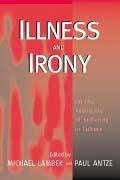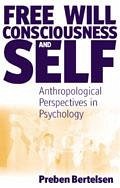
Illness and Irony (eBook, PDF)
On the Ambiguity of Suffering in Culture
Redaktion: Lambek, Michael; Antze, Paul

PAYBACK Punkte
8 °P sammeln!
Theories of illness and therapy since Freud have included the possibility that sufferers are complicit in their conditions. The studies in this volume explore the ways in which illness and therapy may be characterized as sites at which ironies of the human condition are produced, encountered, acknowledged - or discounted in favor of more literal readings. They ask what these sites can teach us about questions of human agency and about the broader importance of irony for theory. Encompassing a variety of perspectives, the contributors included in Illness and Irony apply theories of irony to a ...
Theories of illness and therapy since Freud have included the possibility that sufferers are complicit in their conditions. The studies in this volume explore the ways in which illness and therapy may be characterized as sites at which ironies of the human condition are produced, encountered, acknowledged - or discounted in favor of more literal readings. They ask what these sites can teach us about questions of human agency and about the broader importance of irony for theory.
Encompassing a variety of perspectives, the contributors included in Illness and Irony apply theories of irony to a myriad of cultural contexts, ranging from Freud's consulting room and the Lacanian clinics of Buenos Aires to fright illness in a Yemeni village and spirit possession on the island of Mayotte. An introductory chapter by Michael Lambek establishes a contextual viewpoint on irony, arising from the writings of Thomas Mann, Alexander Nehamas and others. Vincent Crapanzano concludes the volume by linking the contributions to current debates about irony in rhetoric, linguistics and comparative literature.
Encompassing a variety of perspectives, the contributors included in Illness and Irony apply theories of irony to a myriad of cultural contexts, ranging from Freud's consulting room and the Lacanian clinics of Buenos Aires to fright illness in a Yemeni village and spirit possession on the island of Mayotte. An introductory chapter by Michael Lambek establishes a contextual viewpoint on irony, arising from the writings of Thomas Mann, Alexander Nehamas and others. Vincent Crapanzano concludes the volume by linking the contributions to current debates about irony in rhetoric, linguistics and comparative literature.
Dieser Download kann aus rechtlichen Gründen nur mit Rechnungsadresse in A, D ausgeliefert werden.













